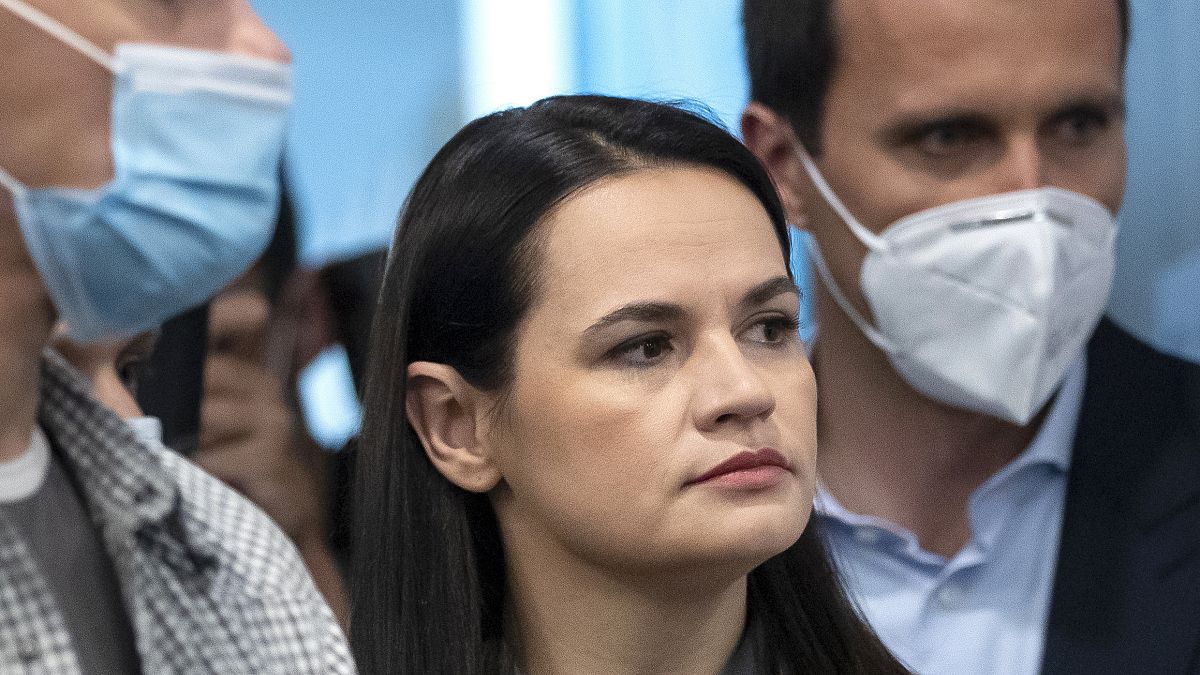The opposition leader has called for a bolder response from the EU over Alexander Lukashenko's refusal to relax his grip on power.
Leading Belarusian opposition figure Sviatlana Tsikhanouskaya has urged the European Union to be "more brave" in its response to Alexander Lukashenko's refusal to relax his grip on power.
Plans to impose sanctions have been delayed, undermining efforts to take a firm stand over last month's allegedly rigged election and the human rights abuses that have followed.
Tsikhanouskaya's comments came as she took questions from reporters in Brussels on Monday morning.
Watch the session again below
She urged EU foreign ministers to "be more brave" at their scheduled meeting and break the deadlock over imposing long-promised sanctions.
The opposition leader, who left Belarus for Lithuania after the disputed election on August 9, said the sanctions were "very important in our fight" against Lukashenko's regime.
"They force the so-called authorities to start a dialogue with us," she added. "We really need this call from the EU. Because this is the main goal... of our fight at the moment."
Tsikhanouskaya then made further requests during an address to the European Parliament Foreign Affairs Committee, such as reconsidering partnerships with any organisations that are close to Lukashenko, and to help create an international coalition to facilitate negotiations between protesters and the Lukashenko regime.
She told the committee: “The Belarusian uprising is not a geopolitical revolution, it is not anti or pro-Russia or anti or pro-EU. It is pro-Belarusian democratic revolution.”
The EU has drawn up a list of around 40 people it could hit with asset freezes and travel bans in response to irregularities that gave Lukashenko a sixth term.
The question is whether to include the leader himself and put all individuals on the list at once or, as some EU countries would prefer, gradually expand it to step up the pressure should the authorities still refuse to talk to the opposition.
Heiko Maas, Foreign Minister of Germany which holds the EU's rotating presidency, said his European counterparts must "ask ourselves the question of whether Mr. Lukashenko, the one who bears the main responsibility, mustn’t also be sanctioned by the European Union."
EU foreign policy chief Josep Borrell said the ministers would also consider what support they could give to the Belarusian people, as well as the EU's relations with Minsk given that "we don’t recognise Lukashenko as the legitimate president of Belarus."
Tsikhanouskaya repeated that she did not intend to stand for president herself, should a new election be held.
The main challenger to Lukashenko in last month's ballot, highly contested official results gave her only 10% of the vote compared to 80% for the leader who has held power for over a quarter of a century.
Tens of thousands of demonstrators took to the streets of Minsk on Sunday despite police pressure in the now weekly protests against the reelection of the authoritarian leader.


